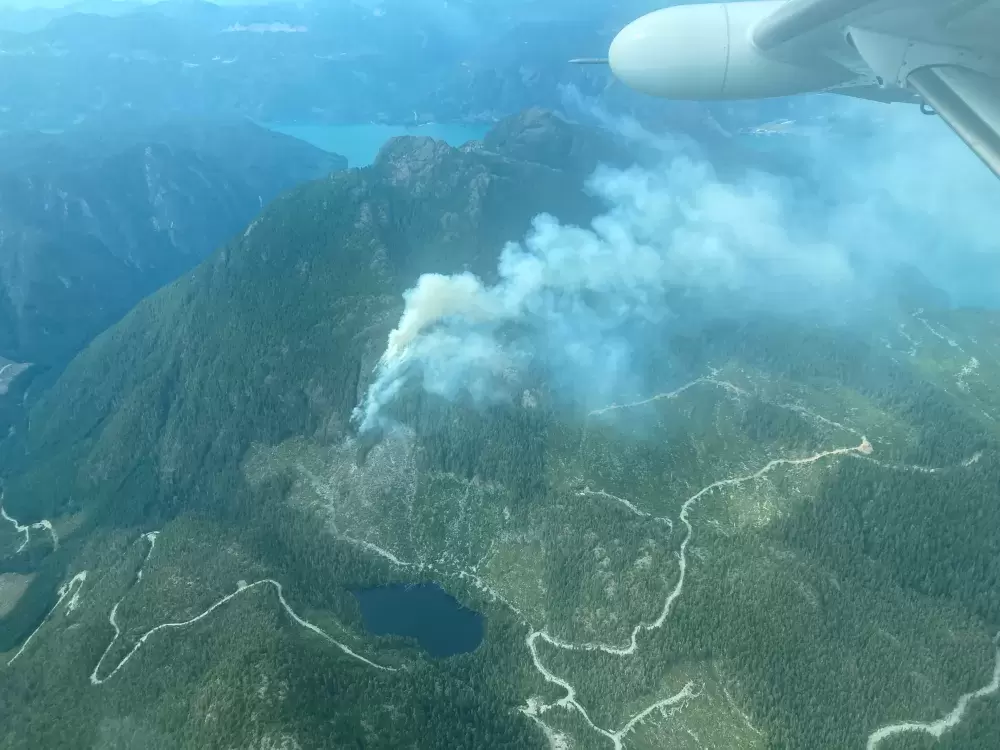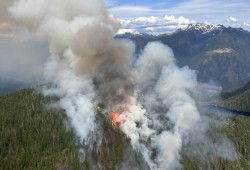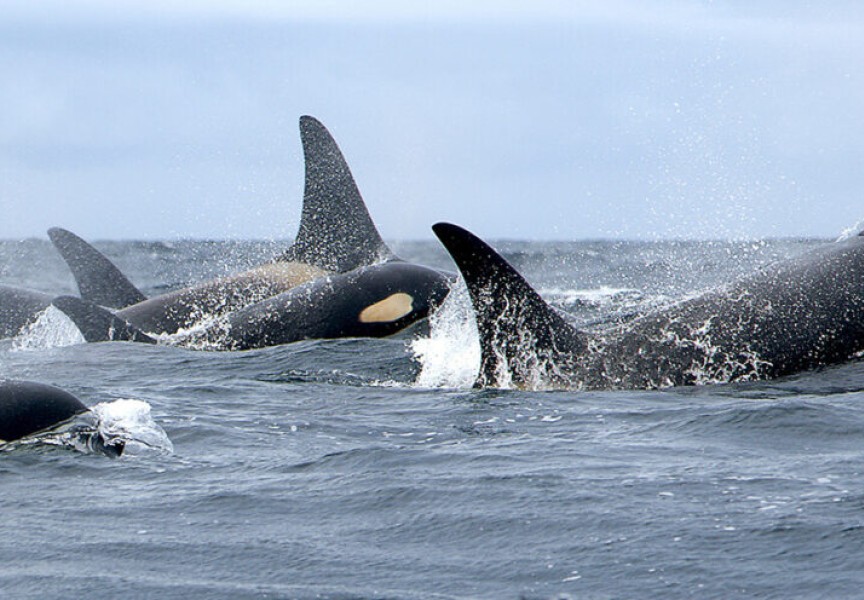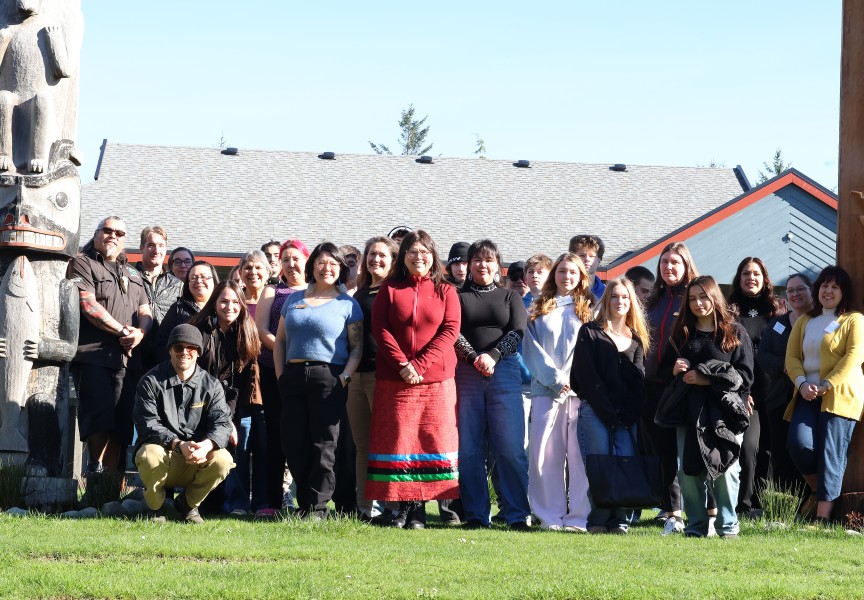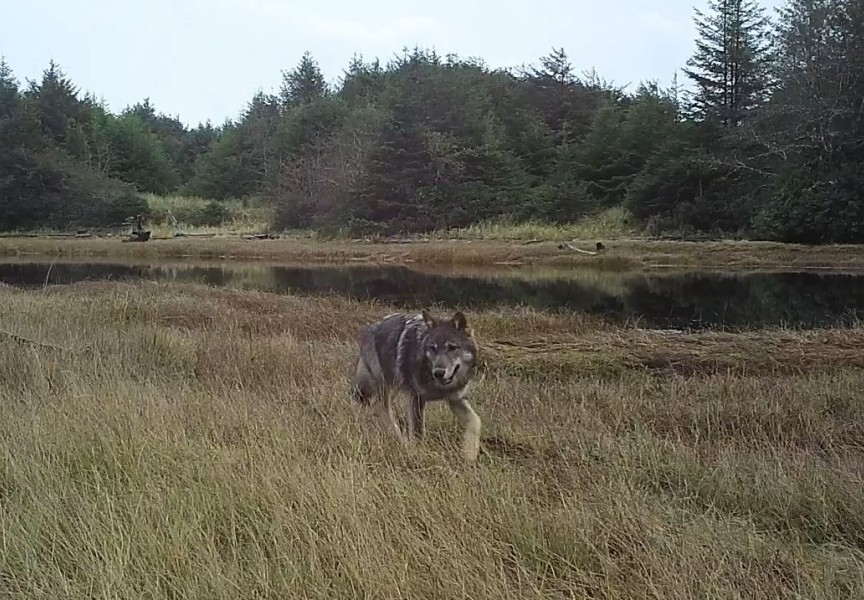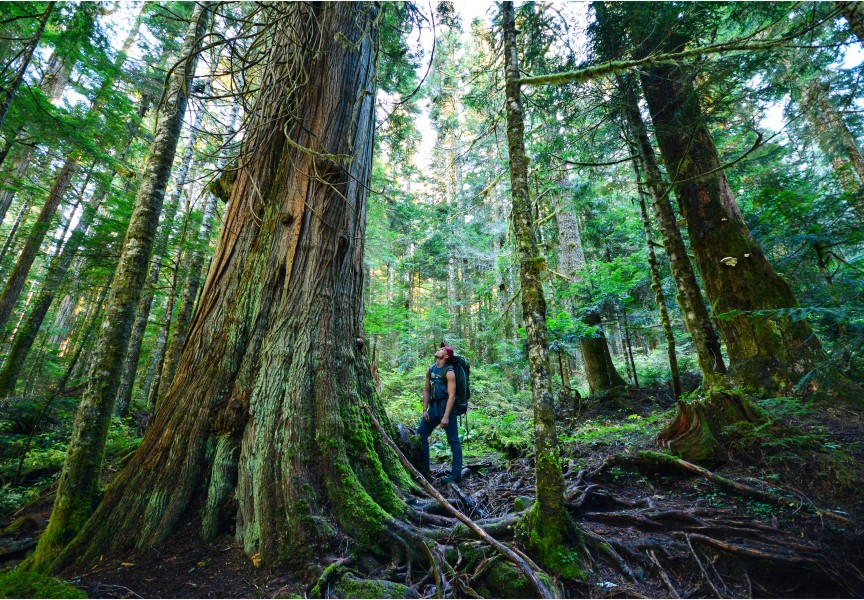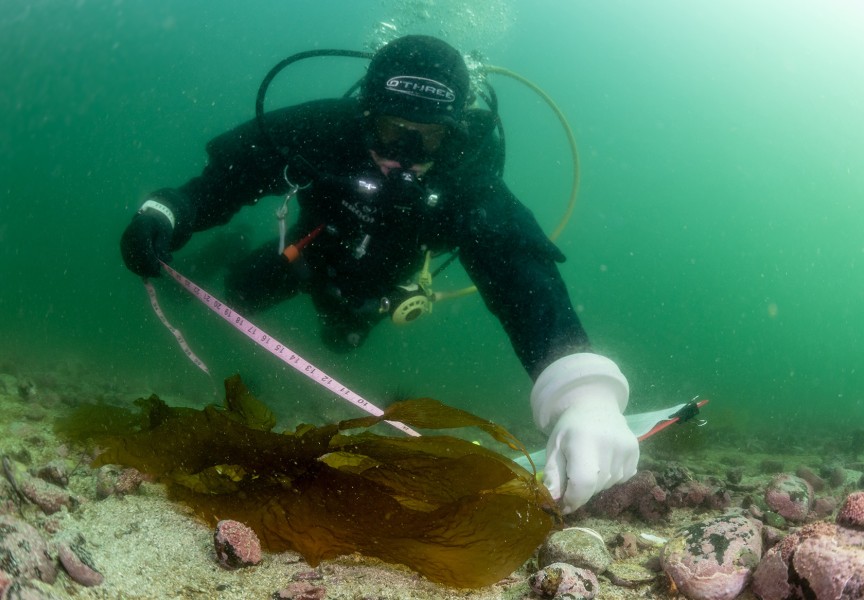The Jacklah River wildfire, located approximately five kilometres south of Gold River, has changed status to “under control”. This change was announced by the B.C. Wildfire Service on via their website on July 26.
“This fire received significant rain and is being wrapped up. The top of the fire will likely continue to burn through the summer due to the safety hazards of the terrain the fire is burning in. It is very steep, heavy timber with significant safety risks due to danger trees, therefore, applying direct fire suppression tactics is not safe or obtainable in these areas,” read the announcement. “Crews have made excellent progress in workable terrain and the fire is now classified as Under Control, meaning it will not spread beyond its current perimeter. A plan is in place to monitor the portions of the fire that are inaccessible.”
The fire has an estimated size of 35 hectares, and is believed to have been started by a lightning strike. The Jacklah River fire was first reported on July 20.
Jacklah River is one of five fires currently burning on Vancouver Island, and is directly in the middle in terms of size. The Cameron Bluffs fire located near Port Alberni and the Newcastle Creek fire west of Sayward are currently larger, with Newcastle Creek also being the only fire on the island not listed as “under control”. That one is currently being held.
The Province of British Columbia announced a total of 1,801 fires between April 1 2022 and March 31 2023. Since April 1 of this year, the province has already reported 1,562 wildfires province wide. 190 of those fires have been in the Coastal region, which includes Vancouver Island.
While the rainfall has been beneficial in getting these fires under control, we are not out of the woods just yet.
“Many parts of British Columbia experienced showers and cooler weather over the last couple of days,” said Minister of Emergency Management and Climate Readiness Bowinn Ma in a press conference on July 27. “I know that this may give the perception that our drought and wildfire challenges have been eased, but that is not necessarily the case.”
Much of the province is facing severe drought conditions. Twenty three of the 34 water basins across British Columbia are currently sitting in drought levels four and five, the highest levels possible.
“The majority of our weather stations are picking up less that normal percentages of rainfall for this point in the year,” explained Cliff Chapman, director of operations for the Wildfire Service.
Chapman went on to state that he believes we could be on track for one of the most, if not the most, difficult fire seasons in provincial history. Wildfires have already burned more than 1.5 million hectares province wide, the most in any fire season in British Columbia’s history.
“Obviously the impacts of this fire season have been significant. And just like we saw in [2017, 2018, and 2021], communities are being impacted. Resource values are being impacted. Critical infrastructure is being impacted. And so, this season is on par with [2017, 2018, and 2021],” says Chapman.
Jonathan Boyd, a hydrologist with the River Forecast Centre, went into even greater detail as to just how dry the year has been. Going back over 100 years, 2023 is the driest year ever in both Tofino and Prince George. Boyd also says that while Vancouver Island is doing significantly better than much of the province following rainfall in the last week of July, it is not quite time to celebrate.
The provincial government is urging people to continue following the directions and warnings of local authorities and First Nations as we continue through what is shaping up to be a devastating year for wildfires. The status of current fires, as well as current restrictions, can be seen at bcwildfire.ca or on the BC Wildfire Service App.
Wildfires can be reported by calling 1 800 663-5555 toll-free or *5555, or through the aforementioned app.

